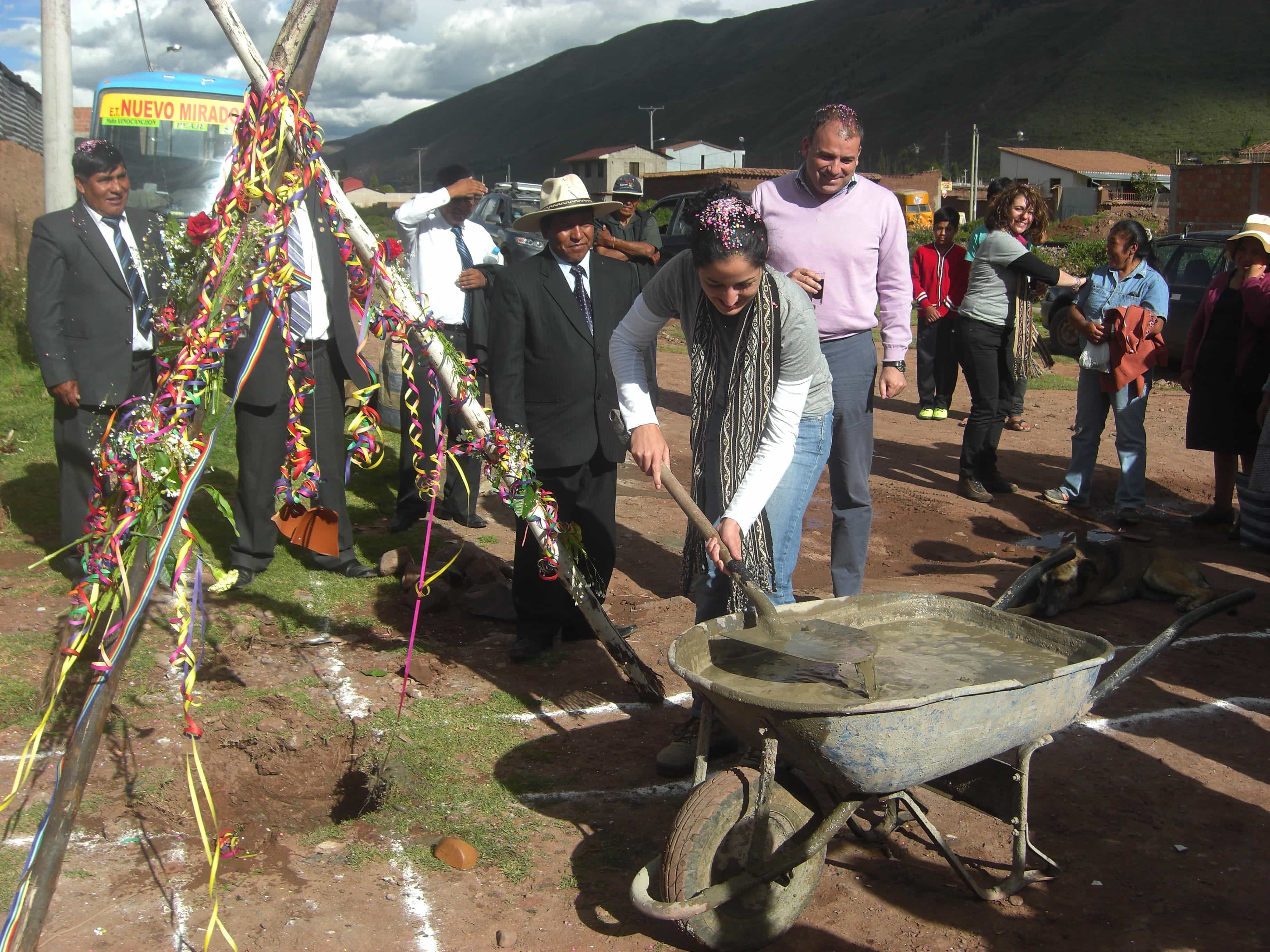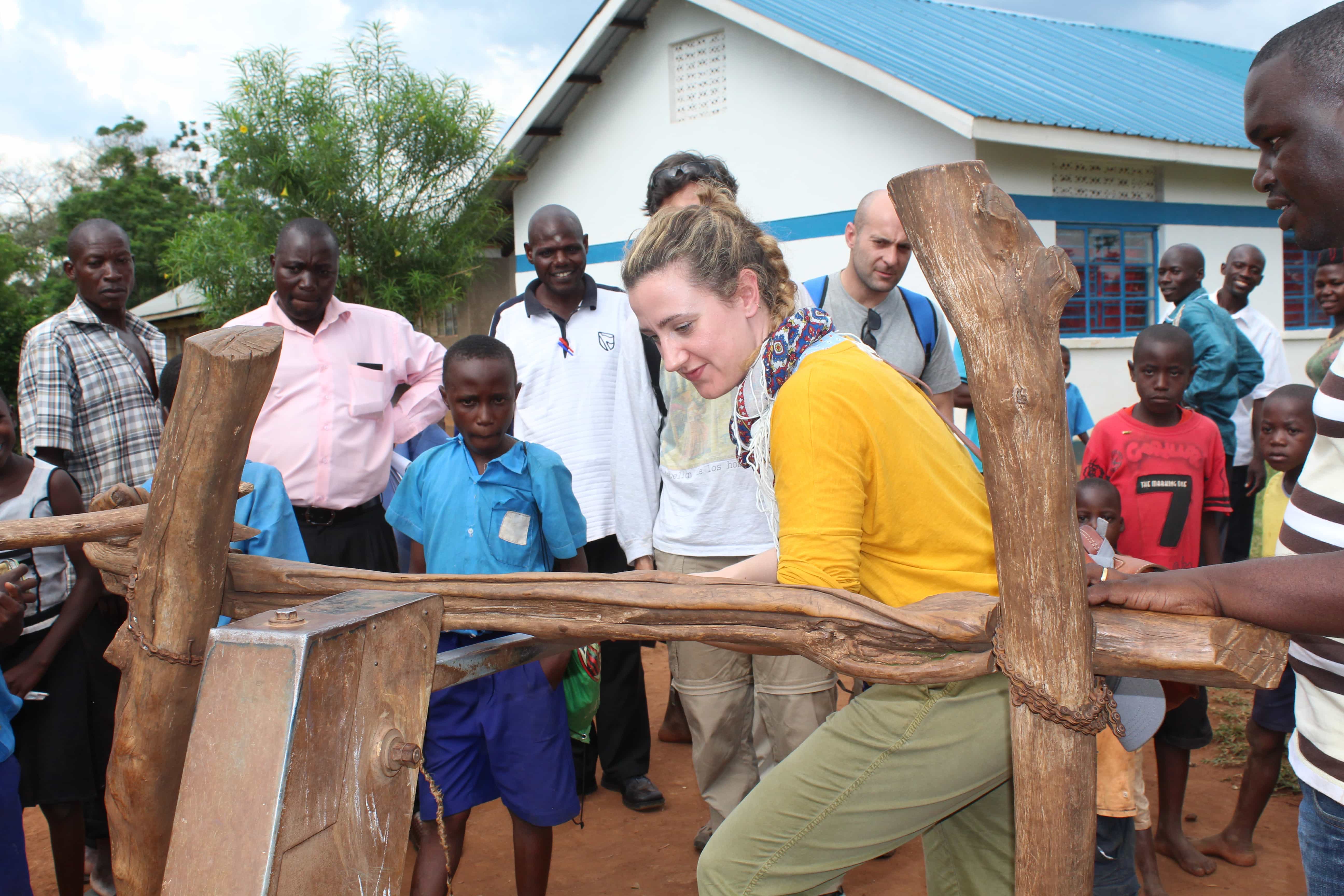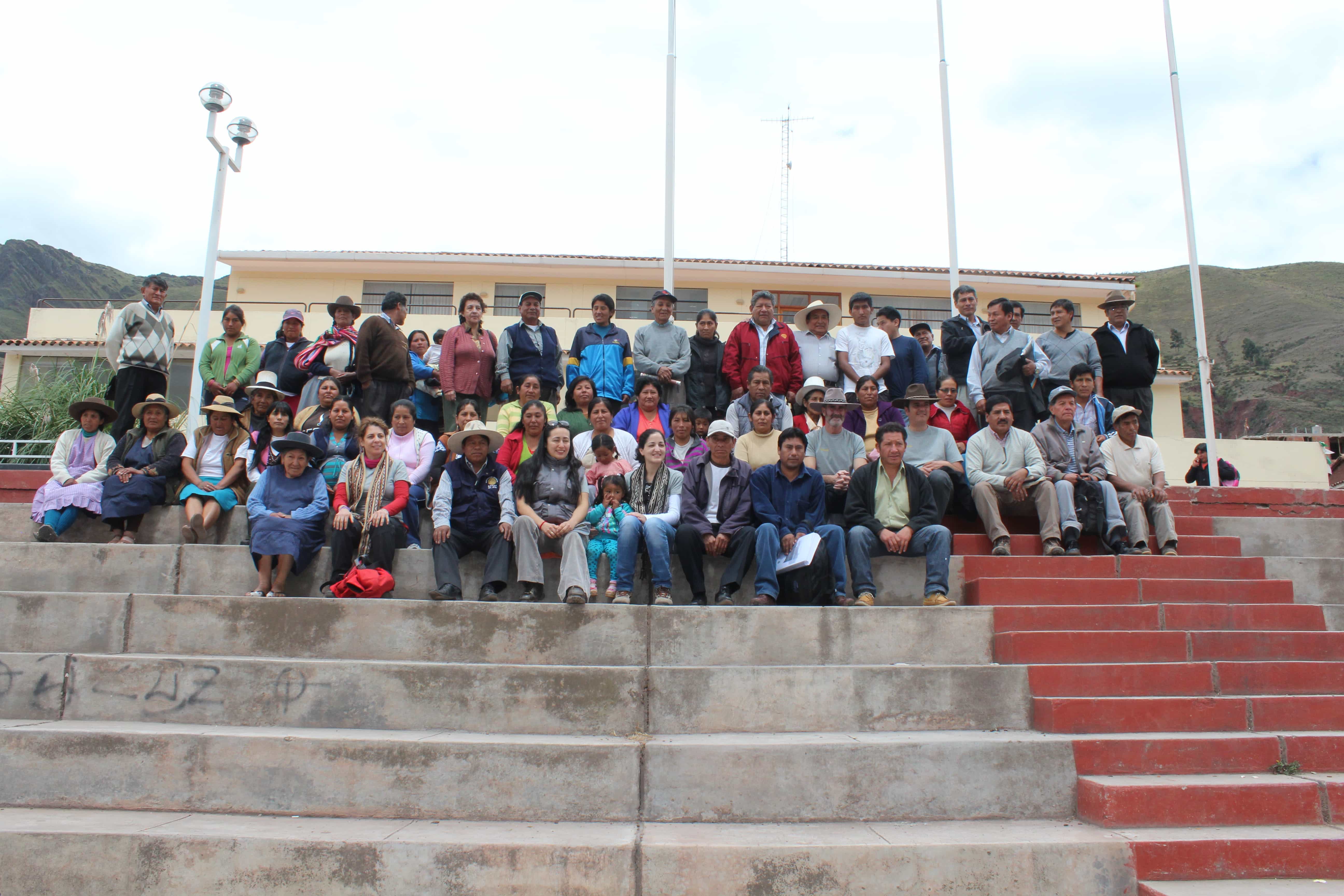Seventy-nine Ferrovial professionals have volunteered in the Social Infrastructures programme. Three of them, Rosario Tripiana, Mabel García and Javier Martínez, are sharing their experiences with us and giving us an honest, and bravado-free, perspective on the programme.
Desde su creación en 2011, el programa ‘Infraestructuras Sociales’ ha demostrado que la mejor forma en la que una empresa puede contribuir al desarrollo humano es aportando lo que mejor sabe hacer que en el caso de Ferrovial es construir y gestionar infraestructuras.
Desde el inicio de la colaboración de Ferrovial con ONGD, 79 empleados de la compañía han contribuido con su talento y experiencia en el éxito de alguno de los 18 proyectos que se han desarrollado dentro del programa, que tiene como objetivo mejorar y ampliar el acceso al agua para consumo humano y el saneamiento básico en comunidades en riesgo de exclusión de África y América Latina.
“Cuando decidí participar, mi expectativa principal era poder aportar conocimiento técnico. Se piden perfiles muy concretos, por lo que siempre asumí que se necesitaba bastante experiencia en la materia del proyecto”, destaca Rosario Tripiana, una de las profesionales de Ferrovial Agroman US & Canada que han participado en Infraestructuras Sociales, concretamente en la construcción de un sistema de abastecimiento de agua para consumo humano en el distrito de Saylla (Cusco), en Perú, junto con la ONG Ecología y Desarrollo.
Para cada uno de los proyectos se organiza al menos un viaje. El número de voluntarios que se desplazan varía entre dos y cinco, en función de las necesidades y de las posibilidades logísticas. Los perfiles profesionales los define la Comisión Paritaria que se crea para cada proyecto del programa. Esta comisión está formada por representantes de Ferrovial y de la ONG socia. Aunque generalmente se requieren perfiles técnicos, en ocasiones se precisan profesionales con otras habilidades. Este fue el caso de Mabel García, que trabaja como especialista en comunicación y relación con grupos de interés en Ferrovial Agroman UK. “Me alegré mucho cuando una compañera que anteriormente había participado en Infraestructuras Sociales me envió la convocatoria de voluntarios. Creo que en ninguna edición anterior habían buscado a especialistas en comunicación”, afirma Mabel, que viajó a Uganda para colaborar con Plan International en el desarrollo de un proyecto que dotará de acceso a agua potable a más de 13.000 personas.

LA EXPERIENCIA DEL VOLUNTARIO
Una vez que se selecciona a los voluntarios y se confirma su participación, se asignan funciones en base a los conocimientos de cada uno de ellos. Antes de iniciar el viaje, el grupo recibe información relativa al proyecto y se asiste a una sesión informativa sobre el contexto, los socios de Ferrovial involucrados en el proyecto, tanto en España como en el país en que este se ejecuta, y cuestiones logísticas. “La manera en que el equipo de Responsabilidad Corporativa organizó todo el proceso fue excelente. La comunicación en cada fase fue muy fluida. El equipo de Plan International nos recibió con una profesionalidad genial y nos explicó muy bien qué esperaban del grupo y de cada especialista en particular”, comparte Mabel.
Para Javier Martínez es fundamental que los voluntarios sean previamente conscientes del papel que desempeñan las organizaciones involucradas en el proyecto y de cómo ellos les van a aportan valor. “La falta de experiencia y la deformación que se percibe a través de los medios de comunicación hacen que te veas como un actor principal, cuando lo que se pretende es colaborar, dejando que el proyecto lo lideren y construyan personas locales. Me he dado cuenta de que esto es lo que hace que Infraestructuras Sociales sea más que un mero proyecto de construcción”, apunta. Javier es Jefe de Servicio de Cadagua en la EDAR de Bens y participó como voluntario en el proyecto ‘Ñu Savi: Agua para los mixtecos’, en el que junto con CESAL se implementó un sistema de agua potable que garantiza el servicio a varias colonias del municipio de Asunción Nochixtlán, en el estado mexicano de Oaxaca.
Sobre el terreno, los voluntarios proponen soluciones para mejorar el proyecto. “Aunque no encontramos grandes dificultades técnicas, sí hicimos varias recomendaciones al diseño, como modificar la localización del tanque para evitar que posibles deslizamientos lo dañasen en el futuro o cambiar sus dimensiones para garantizar el suministro a una población futura a 20 años”, recuerda Rosario. Además, los voluntarios, junto a la ONG socia, se esfuerzan en que las comunidades hagan suyo el proyecto. Como explica Javier: “Estuvimos reunidos con la población que se iba a beneficiar del proyecto, con el representante vecinal, el técnico municipal y el alcalde. Asesoramos con conocimientos técnicos a los ejecutores del proyecto e intentamos hacerles conscientes de aspectos como la socialización de la infraestructura, la seguridad, la salud, la gestión o la buena gobernanza”.
Una vez en el destino, entender que la disponibilidad de medios puede ser muy diferente a la que se da en los países en los que los empleados trabajan puede suponer un obstáculo, pero como señala Mabel ese contexto impulsa a los voluntarios a ver las dificultades desde otra óptica. “Nos dimos cuenta de que simplificar es lo mejor que se puede hacer y que a veces la solución está en lo más sencillo”.
Rosario destaca la oportunidad de colaborar con ONG que están técnicamente muy preparadas con los medios de que disponen. “Involucran al voluntario al 100%, promoviendo el intercambio de experiencias con profesionales que viven una realidad completamente diferente a la nuestra y que son capaces de llevar a cabo proyectos que realmente cambian la realidad de las comunidades en las que viven”, señala.

DESPUÉS DEL VOLUNTARIADO
La experiencia vivida sobre el terreno deja huella en los voluntarios. Mabel, Rosario y Javier confirman que en su día a día aplican todo lo que aprendieron de los compañeros de Ferrovial con los que compartieron el viaje y de los profesionales de las ONG con las que colaboraron así como competencias propias que el contexto en que desarrollaron su voluntariado potenció.
“Mi trabajo en Londres se relaciona con proponer soluciones que mantengan y mejoren las relaciones y la conexión entre las comunidades en que trabajamos y nuestros proyectos. Cuando entiendes cuáles son los motivos que mueven a esa comunidad, preparar un plan de compromiso resulta mucho más fácil. Aprendí de mi compañera Rosa Sanchís una forma eficiente de transformar ideas en un plan estructurado de acción. Aprendí de los profesionales de Plan Uganda que nuestros trabajos, al final del día, no son tan diferentes”, comparte Mabel.
Rosario destaca que esta experiencia “le hizo valorar aún más la importancia de los profesionales con los que se trabaja, no sólo técnicos, sino también las personas de la comunidad que conocen el área y las necesidades del proyecto”. Algo similar aprendió Javier. “Destacaría la necesidad de entender a las personas para lograr el éxito de un proyecto. Todo el mundo tiene cosas que decir. Solo hay que escuchar y reflejar algo de eso en el contenido de los proyectos”, apunta.
Los tres recomiendan encarecidamente participar como voluntario en Infraestructuras Sociales. Rosario sintetiza las razones. “Para mí ha sido una de las experiencias profesionales y personales más gratificantes. Primero por poder compartir con profesionales locales esta experiencia. Por poder involucrarte dentro de comunidades con una generosidad extraordinaria. Por poder valorar de primera mano lo que Infraestructuras Sociales hace y poder darle la importancia que merecen. Y por el gran equipo que se forma durante esas semanas con tus compañeros de Ferrovial, realmente merece la pena”.








